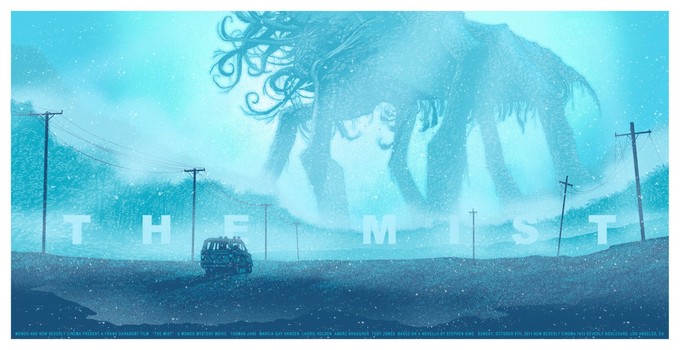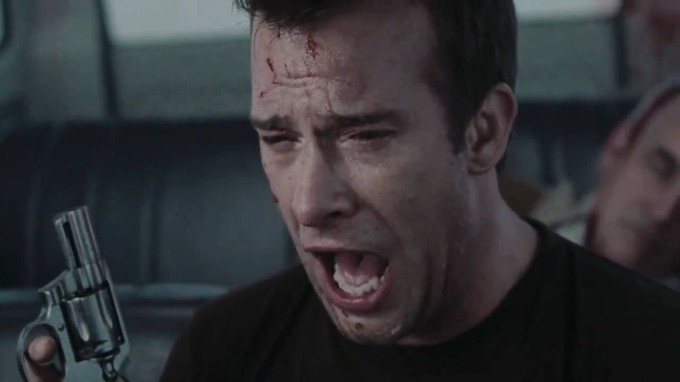Ahoy, squirts! Quint here. I don't editorialize much on the site, but there's been something churning quietly in my mind for a while now and it has recently been kicked awake by multiple dumbass click-bait articles that for whatever reason always pop up on my social media timelines.
These “articles” are usually titled something like “9 Bad Endings That Totally Ruined the Movie (please God, someone click this random, half thought-out list written by a 23 year old intern who hasn't seen a movie that came out before Star Wars with the possible exception of The Wizard of Oz because everybody has seen The Wizard of Oz, right?)”. The second part is what I hear in my head when I see those headlines, by the way. Sites that run pieces like that are definitely not self-aware enough to include such transparency in their headlines.
I usually don't click on them for obvious reasons, but now that most social media posts come with an automatic picture I always see a photo of the same movie associated with these lists and that movie is The Mist.

Listen, I get that the ending to The Mist is a gut punch and you can argue all day whether the film earns it or if Frank Darabont and his cast pull it off, but if you call it a bad ending just because it made you feel icky then you're part of the problem with modern studio filmmaking.
I don't know how you can be a movie fan and not adore dark endings. If you're anything like me you watch a whoooooooole lot of movies, old and new, every year. When you do that you'll inevitably start picking up on standard film structure, story patterns, character arcs and act breaks. You'll either start appreciating these things on a movie by movie basis or get bored with the repetition.
That's why you see a lot of critics turn their nose up at big budget Hollywood blockbusters and laud weird little indies. Critics don't typically get to watch only the movies they're interested in, so they see all the worst formulaic dreck that the studios put out and when a fresh, different voice appears in front of them they flip out a little bit, even if they don't realize they're often more enchanted with something being different than with genuinely good storytelling.
The other side of that coin is the casual movie-goer getting used to a certain type of movie with a certain type of characterization and certain type of ending. Happy endings are fine, but the reason they work is because of these black sheep movies that come out once in a blue moon that make audiences feel like their hearts were ripped right out of their chest.
Downer endings like in The Mist or Se7en or Oldboy or One Flew Over the Cuckoo's Nest or Invasion of the Body Snatchers are crucial because they inject an uncertainty into the way every single person watches a movie, be they critic or casual film-goer. They can't be guaranteed that every time they slam down their $8 for a ticket that the good guys are going to win out at the end. That gives movies a kind of mythic power. They can be dangerous.
I have a theory that's why horror films are so consistently popular. Because they're (usually) cheap to make they get away with changing structure a bit more than your standard dark drama. Think about it, most horror movies either end on a downright dark note or in a gotcha moment that teases the heroes might not have completely eradicated the evil they faced. That's certainly true of all the hugely successful franchise pictures. Halloween, Friday the 13th, Nightmare on Elm Street and Saw jump immediately to mind, but it's true of almost all genre flicks.
In horror the bad guys can and almost always do win, even if it's in a small way. It's become culturally accepted as a rule of the genre and I think part of the lasting appeal of horror on the whole is because of that darkness.
So why does The Mist get singled out for its ending? I think people are a hundred times more comfortable with the idea of a big bad monster killing a person than the good guy having to pull the trigger. That's a big part of it. In the case of The Mist both Darabont, and Stephen King before him, did a fantastic job of getting the audience to invest in these characters and when it comes time for the big finale the audience is pulling for them to make it out.
It would have been awful if a tentacle had come out of the gray clouds surrounding that car and yanked little Nathan Gamble out the window, sucking him into the mist for good, but people would have forgiven that. What many folks can't forgive is that Tom Jane's David Drayton is the one to kill his son.
”Why didn't he wait?” I've heard that one a lot, usually followed up with “He didn't exhaust all his options. I would have waited. I never would have done what he did.” That right there is the reason why I'm in awe of the balls Darabont had to take this step. And it was brass iron balls that got it done, by the way. He struggled for years to get the movie made as is and even turned down double the budget if he'd just change the very last few pages of the script. The ending was important for him and I see why.
There is a lot of horror going on in that simple story, but one that gets under my skin is the psychological horror of making a bad decision and I think more than anything that's what repulses the people who hate the ending. It's easy to coldly look at a story and say “I wouldn't do that” from the safety of your couch, but if you really think about how you'd react in a situation like this you might not be comfortable realizing you could have just as easily done what Drayton did.
That ending kicks my ass so hard because of the escalation of the scene. Those ragged survivors kinda knew it was a long shot to just keep driving, but once they see the goliath thing out there everything seems hopeless. After all they've been through they realize they've only just begun to glimpse the horrors concealed within the mist around them. Drayton makes the impossible choice to make his son's death as peaceful as possible, but the kicker is he does so knowing that there aren't enough bullets for him to follow. Jane's performance in this moment is career best stuff from him. You can see him trying to will an extra bullet into the chamber as he puts the gun in his mouth and clicks through all the empties.

Then there's the reveal that they were moments away from being saved. I'd say most who don't like the ending think it's because of this timing, but I'm not so sure. Their salvation was only moments away, but the real knife twist is when we see Melissa McBride and her family being transported past a completely broken Drayton.
You see, he played it safe from the beginning. He did everything logically, thought through his options, and still this awful shit happened to him, yet she was reckless and ran into the mist to get home to her kids, danger be damned. She made it, her family made it, but calm, cool and collected David Drayton did not.
That's the underlying horror of the finale that not enough people recognize. He was the rational guy and should have been rewarded for that, but wasn't. Instead the woman who acted emotionally and without thought was rewarded for those actions while our hero killed his own son and now has to live with that. The real kicker isn't that Darabont shows us, the audience, this revelation, but he also shows his lead. He makes sure David sees her, almost rubs it in his face. Maybe if Drayton had helped this begging woman he could have made it to safety. Hell, maybe he could have even saved his wife. That moment is one final kick to the ribs to both him and us.
Psychologically this is the most fucked up part of the movie, at least for me. I can just tell that if I was in a crisis situation I'd be more worried about the danger of making a wrong decision that I'd likely freeze and make no decision at all. I'd like to think that I'd be super smart and sharp and confident, but my biggest fear is that I'd just be paralyzed with indecision.
I think the ending of The Mist is incredible for the exact same reasons a lot of people seem to hate it, but I'm not actually trying to talk anybody out of their opinion on the film's finale, but instead hoping to put it into context for movies on the whole.
Because you see a movie like The Mist or Romero's Night of the Living Dead or Dirty Mary Crazy Larry or Drag Me To Hell or even something like Bridge to Terabithia it makes every film you see unpredictable. If these films didn't exist then every single time you go to a movie you'd know how everything turns out in the end, but now there's that nagging sliver of doubt in the back of your mind when you buy a ticket for this weekend's latest release that maybe you don't know every twist and turn in advance.
Sometimes the good guys don't win. Sometimes a character can make all the right decisions and still get cornholed by fate/chance/God/whatever. You can never be sure when a curveball will be thrown at you and that's why going to the movies is still exciting.
-Eric Vespe
”Quint”
quint@aintitcool.com
Follow Me On Twitter

